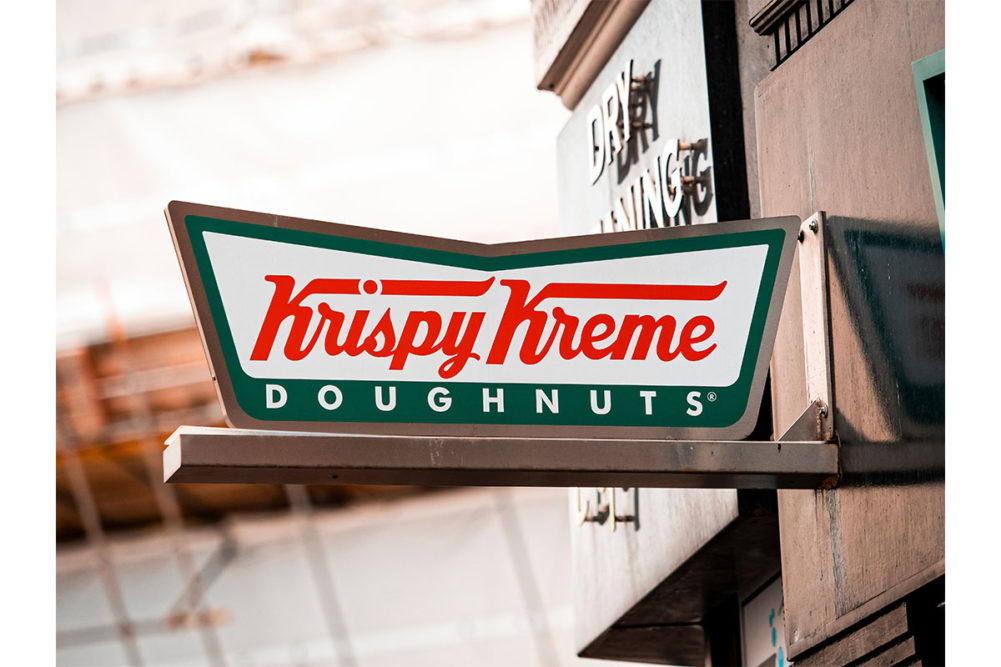CHARLOTTE, NC. —Krispy Kreme, Inc., specifically its UK team, partnered with the food waste saving app Too Good to Go in 2022 to notify consumers about end-of-day donuts that are available for purchase at a discount, leading to nearly 275,000 donuts being sold and saving 113.7 tonnes of CO2e, which is equal to 128 flights from London to New York. The highlight was one of several mentioned in the company’s first ever “Be Sweet” report, a 32-page responsibility report issued on Dec. 13 that underlines the progress Krispy Kreme has made toward achieving its sustainability goals in 2022.
One of these goals is supplier management. In 2022, Krispy Kreme required all new key suppliers to sign on to and comply with the company’s Supplier Code of Conduct or submit their own Code of Conduct for review. Krispy Kreme also participated in sustainability sessions and evaluated all key suppliers to guarantee they each have a compelling strategy and initiatives that line up with the company’s responsibility goals. Moreover, Krispy Kreme aims to achieve 100% cage-free eggs by 2025.
The report also emphasized reducing greenhouse gas (GHG) emissions. Even though Krispy Kreme emitted more Scope 1 and 2 carbon dioxide equivalent (CO2e) in the 2022 fiscal year than in the 2021 fiscal year, the company still used its GHG inventory to develop emission targets that align to the Science Board Targets initiative (SBTi) and to lower carbon emissions in the future. Krispy Kreme also coordinated with the Task Force for Climate-Related Financial Disclosures (TCFD) to present climate-related risks, opportunities and key metrics.
Another goal is achieving carbon neutrality in the United Kingdom and Ireland. In 2022, both countries started sourcing renewable energy and strategic carbon offsets linked to Krispy Kreme’s ingredient supply sources and thus became carbon neutral (as verified by Sustainable Advantage), the report noted. The carbon offset was from renewable energy and conservation projects such as Musi River Hydro (Sumatra, Indonesia), a 210-megawatt hydroelectricity plant that also establishes a reforestation program to preserve the natural landscape; Vinh Hao 6 Solar Power Project (Binh Thaun, Vietnam), a large solar power plant that offsets approximately 2.5 million tonnes of CO2e emissions annually; and Maisa REDD+ Project (Brazil), which protects a large area of the Brazilian Amazon that is home to more than 450 animal and plant species unique to the region.
The report also indicated waste reduction is a top priority within Krispy Kreme’s “Be Sweet” strategy as the company aims to divert at least 50% of food waste from landfills by 2025. To accomplish this goal, Krispy Kreme has instituted several core food waste initiatives that include improved demand planning efficiency through integrated business planning (IBP), food waste to animal feed programs, a global food donation strategy to partner with food banks and give “sweet treats” to communities in need, working with surplus food apps to maximize sales of end-of-day donuts, employee waste training and education, and optimized delivered fresh daily (DFD) displays and merchandising solutions to reduce end of day waste at customers locations.
Similarly, Krispy Kreme accomplished 65% recyclability in 2022 through 100% recyclable retail cartons around the world, 100% plastic free cups in the United Kingdom and Ireland, 100% plastic straws in the United Kingdom and Australia, and 100% compostable straws in Mexico. The company also aims to reach 80% recyclable or compostable packaging across its operations by 2025. To accomplish this goal, Krispy Kreme is focusing on the commercialization of recyclable grease-resistant DFD cartons, 100% paper-based coffee cups and a reduction in single-use plastic consumption over the next two years.
“As we aspire to be the world’s most loved sweet treat brand, we take seriously our responsibility to drive positive impact, and none of our accomplishments are possible without our amazing team members, who are the heartbeat of our company,” said Mike Tattersfield, chief executive officer of Krispy Kreme. “For everyone at Krispy Kreme, being sweet is an ongoing mission, and we’ll keep striving to make a positive difference in the long term.”
To access the full report, click here.





